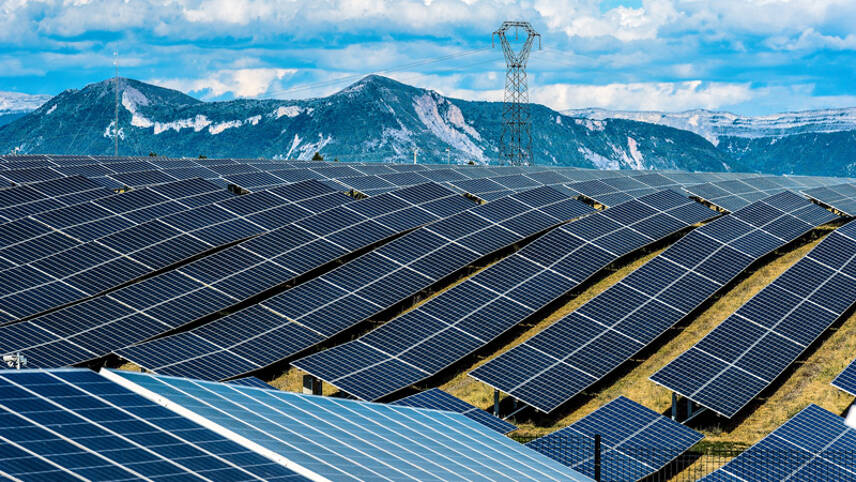Register for free and continue reading
Join our growing army of changemakers and get unlimited access to our premium content

Pictured: Solar panels in the French Alps
Under the proposal, renewable energy projects “would be presumed to be of overriding public interest,” the Commission explained in a statement, saying this will allow a “simplified assessment” to speed up procedures.
The proposal also “clarifies the scope” of nature protection rules under the EU’s Birds and Habitats directives “in order to eliminate bottlenecks in the permit-granting process” for renewable energy projects.
Solar rooftop projects, for instance, and small solar installations below 50 kW of capacity will be exempt from a dedicated environmental impact assessment. And appraisals for replacing ageing wind turbines with new, often larger, units will have to be concluded within six months.
The new temporary emergency regulation will apply for one year until the EU’s revised renewable energy directive is adopted and comes into force.
“This proposal is another step to fast-track the green transition and responds to the energy crisis started by Russia’s war in Ukraine,” said Frans Timmermans, the EU’s climate chief and Commission vice-president in charge of the Green Deal.
The Commission’s ‘REPowerEU’ plan presented in May already included measures to address the lengthy and complex administrative procedures that slow down the pace of renewable energy projects.
“However, the situation in the energy markets has worsened since then, prompting the need for urgent measures,” the Commission argued, saying this justifies an emergency intervention under Article 122 of the EU treaty.
Some environmental groups criticised the plan, saying it overrides nature safeguards and democratic checks to the approval of renewable energy projects.
“Scaling up the development of renewables is urgent and imperative. But doing so at the expense of environmental safeguards and democratic checks will create significant legal uncertainty and trigger litigation at the local level,” said the European Environmental Bureau (EEB).
But Timmermans deflected that criticism, saying: “We uphold the necessary environmental protections by focusing on areas where there is strong evidence that there would be no concerns, such as solar panels on existing or already planned structures, or the renewal and upgrading of current plants that are near the end of their economic life.”
Frederic Simon, EurActiv.com
This article first appeared on EurActiv.com, an edie content partner


Please login or Register to leave a comment.